How my travels opened my eyes to OFW woes

Over the past months, I’ve been fortunate to experience the joy of solo travel, both abroad and local. This opportunity also gave me the privilege to meet random Overseas Filipino Workers (OFWs) who showed incredible kindness and guidance, even to a complete stranger like me.
In Macau, I found myself stranded because the SIM card I bought (supposedly valid for both Macau and Hong Kong) turned out to work only in Hong Kong. Inside the bus, I couldn’t understand the Portuguese and Chinese names of the stops, and without signal, I was unable to look them up. A Filipino OFW who noticed my struggle not only guided me through the bus route, but also gave me a glimpse into her daily life. She was on her way to deliver lunch to the school of her boss’ kid, and she kindly let me accompany her while helping me navigate the city afterward. When I was on my way back to Hong Kong, there was a group of three OFWs who offered me free coins for a bus ride because I didn’t have the exact payment, and buses there don’t give change for big bills.
In Hong Kong, the hotel where I checked in had a Filipino cleaner who gladly offered directions to the best spots to enjoy the city. Her tips made exploring not only easier but also more personal, as if a friend was showing me around the city.
In Malaysia, I had another unforgettable encounter at the airport. A Filipino OFW who had just dropped off her daughter (who represented the Philippines successfully in an international taekwondo contest) took the time to help me explore Kuala Lumpur. She even had a breakfast with me near the Petronas and shared her struggles as a single mom working abroad, away from her only daughter. I remember her fighting back her tears as she shared more about her life.
In Singapore, in 2013, I was a young first-time solo traveler, and the experience is still vivid in my memory. An OFW I had been talking to at the departure area in Naia became my companion on the flight. The moment we arrived at Changi Airport, her employer already called her and gave her tasks. She hadn’t even rested yet, she was hungry, but she still took the time to guide me around. She even bought a free McDonald’s breakfast for me at the airport. I could feel she was on a tight budget but she chose to offer kindness instead.
All these have turned my simple solo trips into experiences I will never forget.
Our OFWs work tirelessly and selflessly, often sacrificing years of their lives for the sake of their families back home. They are the backbone of our economy and the pride of our nation, but when they return home, they don’t often receive the care they deserve.
Recently, Naia opened an OFW lounge which offers amenities such as free meals, WiFi, charging stations, and comfortable seating. It also introduced bunk bed-style rest areas for OFWs, in addition to more OFW fast lanes.
This is a welcome improvement, and it shows progress. But why just now, when OFWs have been the life of our economy all along?
Our migrant workers deserve substantial rest and treats after long flights, whether it’s lying down on a comfortable bed with privacy, receiving a free massage/spa, or even undergoing a basic physical checkup, especially for older workers whose bodies bear the toll of travel.
This way, early medical concerns can be detected and addressed.
Just this August, an OFW who had returned from Kuwait tragically died of a cardiac arrest while on a bus to Dumaguete from Cebu. What happened to her is a painful reminder of the toll that long travel and exhaustion take on our migrant workers, even after they have landed safely on Philippine soil.
Her story reminded me of my bus ride from Bacolod to Dumaguete when I was solo traveling from Iloilo to Siquijor last year. I remember, I stood for hours at the bus station in Bacolod while waiting for a bus going to Dumaguete.
Since the Philippines is an archipelago and transportation can be challenging, many OFWs also travel home via ferries like Roro, then long bus travels. Why should rest facilities be limited only to airports? Hostels should also be established in seaports, providing clean beds, showers, and secure luggage storage for returning workers after long journeys.
Now, as I sit in a cafe in my second visit to Taiwan, hearing Filipino voices echoing with Taiwanese accent, I realize these are better investments than the substandard flood control and infrastructure projects that only benefit the systematic parasites of the nation.
Priorities must be given to the real engine of the nation—our dear OFWs.
—————-
Teresa May Bandiola is a pharmacist, writer, medical activitist, and podcast host. She can be reached at bandiolateresamayb@gmail.com.




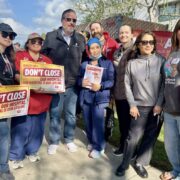
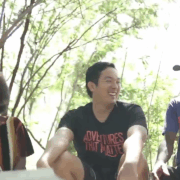
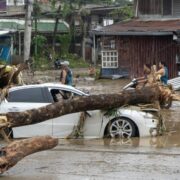


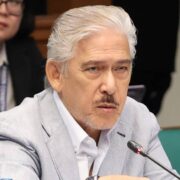


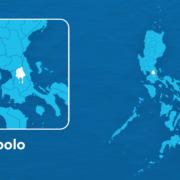




No skills, no industry